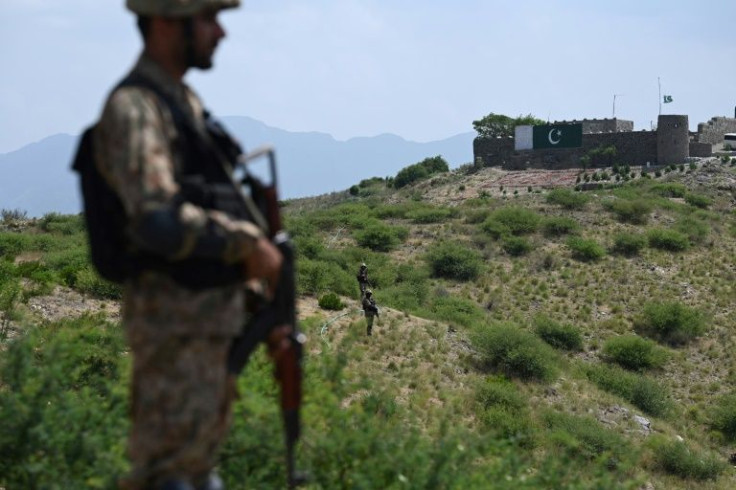Pakistan’s Plan To Tame TTP Using Afghan Taliban Backfires

Pakistan played a deadly game by relying on a militant group to change another militant group's behavior and got its fingers burned.
But now the last thing Prime Minister Imran Khan-led government in Pakistan wants is to rely on the Taliban to find a solution to its security woes connected with Tehreek-i-Taliban Pakistan (TTP) or Pakistan Taliban, the homegrown jihadist outfit that got a new lease of life with Taliban's takeover of Afghanistan in August this year.
Using its influence on the Taliban, Pakistan has forced the ruling Islamic outfit in Afghanistan to serve ties with its Pakistani counterparts who are allied, although maintain separate command structures.
Taliban spokesperson Zabiullah Mujahid has said that the Tehreek-e-Taliban Pakistan is not part of the Islamic Emirates of Afghanistan (IEA).
"They are not, as an organization, part of IEA and we don't share the same objectives," Mujahid told a news outlet.
As the Taliban and their Islamic Emirate of Afghanistan (IEA) distanced themselves from TTP, it is a heavy blow to the TTP which was an umbrella branch of the Afghan Taliban and has operated from the same soil. During the talks, one of the conditions of TTP before the Pakistan government was allowing it to set up an office in a third country.
IEA's decision to distance itself from TTP comes after Western and American powers are trying to work with the Taliban in the self-interest of the militant group which is desperately seeking international recognition for its cash-starved economy.
Aspiring to build an Islamic order in Pakistan, the TTP, formed in 2007, holds sway in the tribal districts of Pakistan - along the Afghan border - and has threatened to make them independent and has added nationalistic credentials like their Afghan counterparts did with the Pashtun ethnic group.
In October this year, Prime Minister Imran Khan revealed that his government was in talks with the TTP for "reconciliation". The government was trying to win over the terrorist outfit by planning to dole out a general amnesty.
However, earlier this week, the TTP declared an end to a month-long ceasefire, accusing the government of breaching terms, including a prisoner release and the setting up of committees. They also accused security forces of conducting raids while the ceasefire was in force.
"Under the circumstances, it is not possible to extend the ceasefire," read a statement issued by the TTP.
The ceasefire was the latest in a series of attempts to end the Pakistan Taliban's insurgency that killed thousands, including 145 people, mostly schoolchildren, in 2014.
As per the last month's secret ceasefire agreement, both sides accepted that the IEA and Taliban would play the role of a mediator.
The secretive nature made the ceasefire pact controversial and Pakistan's top court flayed Prime Minister Imran Khan over the issue.
Referring to the ceasefire agreement, Chief Justice Gulzar Ahmed told the prime minister: "You are in power. The government is also yours. What did you do? You brought those guilty to the negotiating table?"
Pakistan is also reported to have released a number of TTP fighters as part of confidence-building measures to entice the group toward a ceasefire.
One of the demands of the TTP, known for attacking Malala Yousafzai, who won the Nobel prize for her work promoting girls' education, includes implementation of Sharia (Islamic law) in the country's tribal areas.
Soon after the end of the one-month-old ceasefire, the Pakistani Taliban killed one police officer guarding an anti-polio campaign to vaccinate 6.5 million children in northwest Pakistan on Dec. 12. The outfit claims the vaccination campaigns are a Western poly to sterilize children.
With the end of the ceasefire and disownment by the Afghanistan Taliban, instability along the Pakistan-Afghan border is set to increase in the coming weeks and months.
Will the TTP look forward to the Islamic State for succor as they used before the Taliban victory in Afghanistan?
























